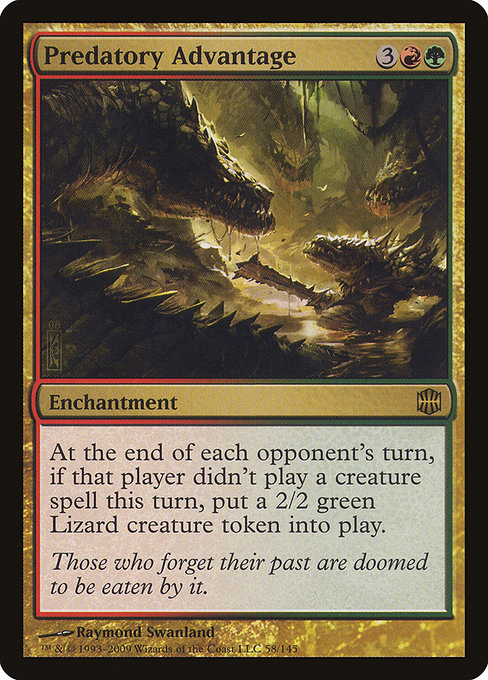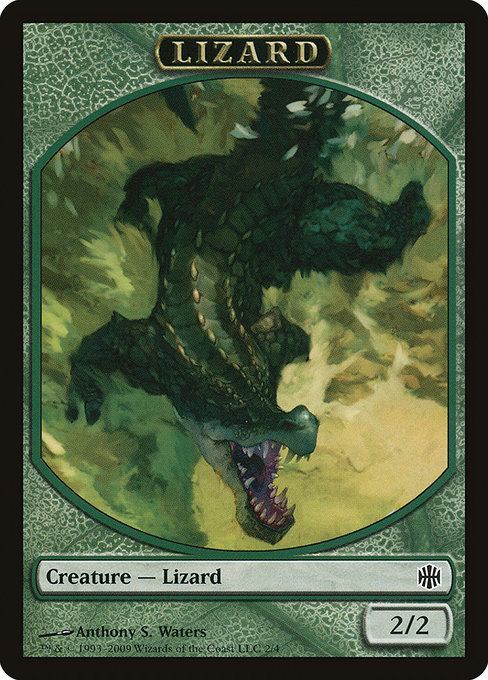standard
future
historic
gladiator
pioneer
explorer
modern
legacy
pauper
vintage
penny
commander
brawl
alchemy
paupercommander
duel
oldschool
premodern
Rulings
Predatory Advantage’s ability has an “intervening ‘if’ clause.” That means (1) the ability won’t trigger at all unless the opponent whose turn it is didn’t cast a creature spell that turn, and (2) the ability will do nothing unless the opponent whose turn it is still hasn’t cast a creature spell by the time it resolves.
Predatory Advantage checks whether a player cast a creature spell, not whether a creature entered the battlefield under that player’s control. If that player cast a creature spell but you countered it, for example, you won’t get a Lizard token that turn.
In a Two-Headed Giant game, Predatory Advantage’s ability triggers twice at the end of the opposing team’s turn: once for each player. If neither of those players cast a creature spell that turn, you’ll get two Lizards. If one of those players cast a creature spell but the other didn’t, you’ll get one Lizard.
Predatory Advantage checks whether a player cast a creature spell, not whether a creature entered the battlefield under that player’s control. If that player cast a creature spell but you countered it, for example, you won’t get a Lizard token that turn.
In a Two-Headed Giant game, Predatory Advantage’s ability triggers twice at the end of the opposing team’s turn: once for each player. If neither of those players cast a creature spell that turn, you’ll get two Lizards. If one of those players cast a creature spell but the other didn’t, you’ll get one Lizard.
Rulings
Predatory Advantage’s ability has an “intervening ‘if’ clause.” That means (1) the ability won’t trigger at all unless the opponent whose turn it is didn’t cast a creature spell that turn, and (2) the ability will do nothing unless the opponent whose turn it is still hasn’t cast a creature spell by the time it resolves.
Predatory Advantage checks whether a player cast a creature spell, not whether a creature entered the battlefield under that player’s control. If that player cast a creature spell but you countered it, for example, you won’t get a Lizard token that turn.
In a Two-Headed Giant game, Predatory Advantage’s ability triggers twice at the end of the opposing team’s turn: once for each player. If neither of those players cast a creature spell that turn, you’ll get two Lizards. If one of those players cast a creature spell but the other didn’t, you’ll get one Lizard.
Predatory Advantage checks whether a player cast a creature spell, not whether a creature entered the battlefield under that player’s control. If that player cast a creature spell but you countered it, for example, you won’t get a Lizard token that turn.
In a Two-Headed Giant game, Predatory Advantage’s ability triggers twice at the end of the opposing team’s turn: once for each player. If neither of those players cast a creature spell that turn, you’ll get two Lizards. If one of those players cast a creature spell but the other didn’t, you’ll get one Lizard.
Your collection? Your decks?
Want to manage your collection and/or create decks?


 0
0
 0.24€
0.24€
